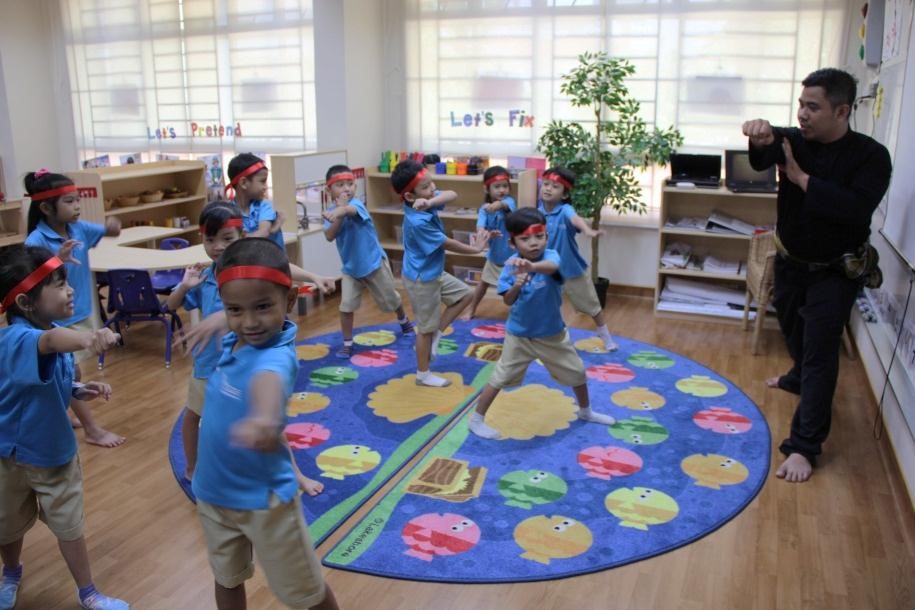During a field trip, children from MOE Kindergarten make their way to a hawker centre, where they learn from stallholders and diners about how chopsticks are used, and why they come in different lengths.
This is part of a Weeks of Wonder (WoW) project at the preschool, where children get to work with their peers and teachers to find answers to their questions. Teachers would implement the various WoW projects based on the children’s interests.
Senior Teacher Ms Ang Lay See had noticed that a character in a book had gotten the children curious about chopsticks.
“In the story, there was a character who was using chopsticks to pick up her food. The children got curious and asked many questions, such as whether long chopsticks could be used for eating noodles,” explained Ms Ang, who teaches Chinese Language at MOE Kindergarten @ Farrer Park. “Eventually, we thought of visiting a hawker centre to find out the answers to the children’s questions.”
The objective of WoW is to give children an opportunity to find joy in learning through exploration and self-direction. The projects are carried out four times per year – twice in English and twice in the children’s respective Mother Tongue Languages. WoW also helps to hone children’s language and literacy skills, while allowing them to appreciate local ethnic culture.
For Ms Ramachandran Shanthi, she brought her young students to a traditional costume shop in Little India, where they learned about the different costumes and materials used in making them.
“We had a lesson on Chinese New Year, where the children learned about lion dance,” says the senior teacher at MOE Kindergarten @ Dazhong. “After that, the children asked if there were similar practices in Indian culture. We looked it up and found out about Indian folk dances, and the costumes and props used.”
Over at MOE Kindergarten @ Tampines, a Malay-language book ignited children’s curiosity about Silat. Their teacher, Ms Siti Raudhah Haji Halimi, then invited a Silat practitioner to share about the martial art.
“The children were very happy and they had about an hour of hands-on activities on Silat moves,” says Ms Raudhah. “Some of them became so interested that they wanted to sign up for Silat classes.”
Through these experiences, children get an opportunity to use their Mother Tongue Languages and see how they are relevant to their daily lives. They also learned the important values such as respect and teamwork.
“The children are encouraged to speak up if they spot mistakes or when they have a different opinion from the teachers, but they are required to ask politely,” says Ms Ang. “As teachers, we will also listen to the children. I think this has taught them to learn to respect one another.”
Parents have also been supportive of the projects, as their children have shown improvement in expressing themselves.
“Parents have told us the project has helped their children to learn about their own cultures,” says Ms Ang. “In fact, they even had a chance to learn about other cultures. The children who took part in the visit to the hawker centre also learned that chopsticks are not just used by the Chinese – they found out that people from other ethnic groups also used them.”
“The parents felt that WoW has not just helped their children to learn more about their own culture, they also said it has helped their children to expand their vocabulary and gain confidence,” adds Ms Shanthi.






.jpg)